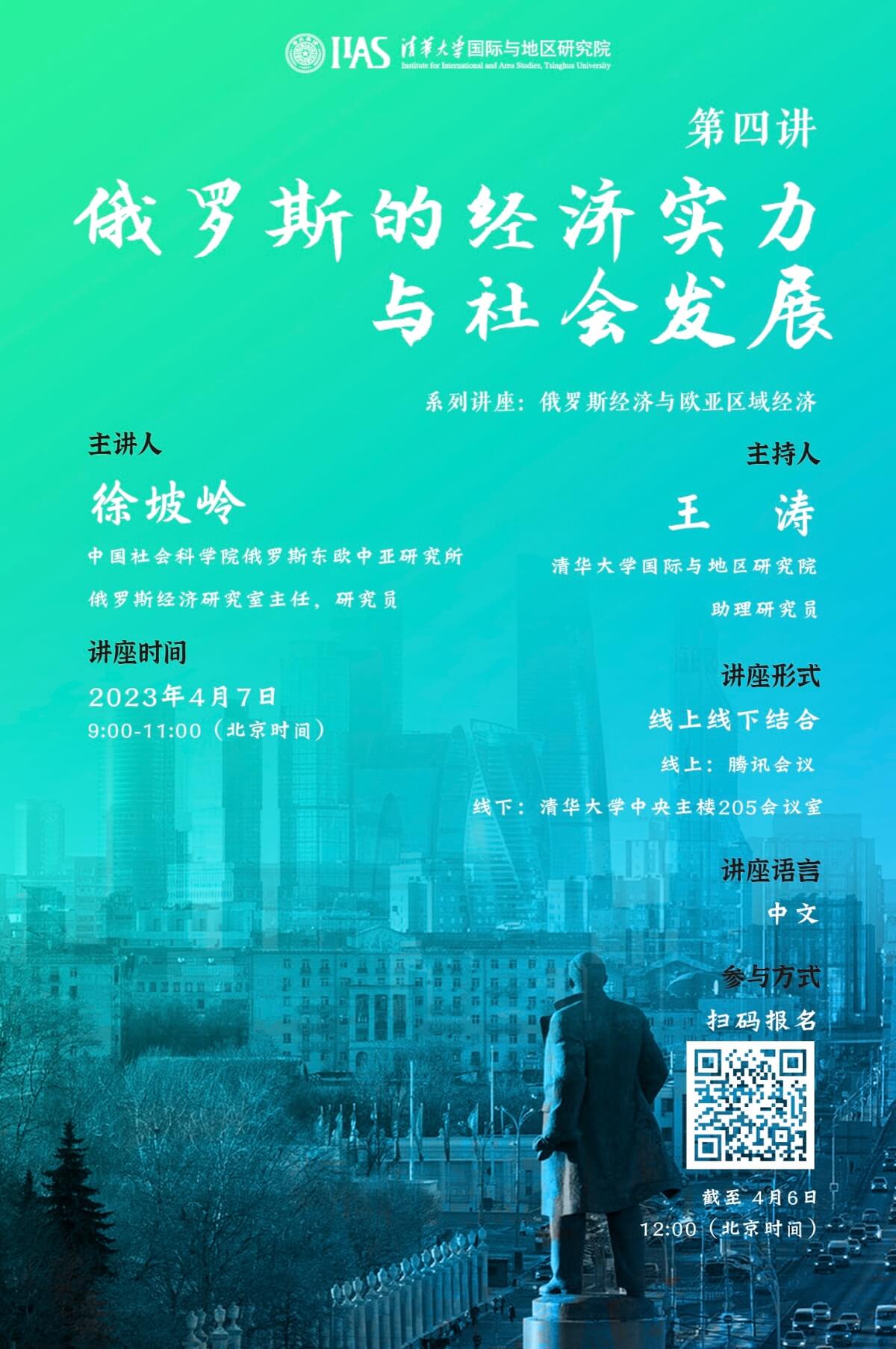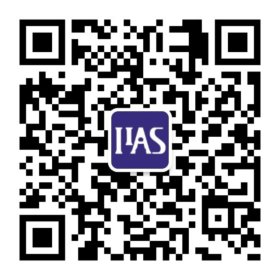
On the morning of April 7, 2023, the Institute for International and Area Studies (IIAS) of Tsinghua University hosted the fourth lecture of the “Russian Economy and Eurasian Economy” series both online and offline. Themed “Russia’s Economic Strength and Social Development,” the lecture was delivered by Xu Poling, Research Fellow and Director of the Department of Russian Economy, Institute of Russian, Eastern European & Central Asian Studies, Chinese Academy of Social Sciences (CASS). Present at the lecture were IIAS assistant research fellows and doctoral students, and scholars and students from other departments of Tsinghua University, Shanghai University of Finance and Economics, Shandong University, The Export-Import Bank of China, etc.
At the beginning of the lecture, Professor Xu Poling gave an overview of a “rich Russia” and a “poor Russia.” As he stated, Russia has a vast territory, is abundant in natural resources and per capita resources endowment, and features an enclosed, self-circulating economic model. However, Russia’s poverty rate remains high, and its per capita GDP in 2021 was lower than that of Guangdong Province. Speaking of global GDP rankings based on multiple indicators, Professor Xu pointed out two misconceptions about measuring Russia’s economic strength, that is, using GDP to measure economic progress and drawing no distinction between current GDP, current-dollar GDP, constant-price GDP and GDP at official exchange rate. He also explained several economic indicators for Russia’s economy and expanded upon the scientific methods and indicator system for measuring a country’s economic strength, as well as the connotation, measurement and role of social capital.
In the second part of the lecture, Professor Xu presented the conceptual logic and application scenarios of global competitiveness, overall national strength and national economic strength. He expounded on the four dimensions and core variables of national economic strength, and conducted a conceptual evaluation on the impact of sanctions on Russia’s economic strength. Finally, Professor Xu shared his views on Russia’s welfare system and welfare levels.
After the end of the lecture, Professor Xu answered a number of questions raised by the audience, such as “the status quo of Russia’s middle class, its situation in the wake of the Russia-Ukraine conflict and its scale, income and self-evaluation,” “how to assess the view that Russia has fallen into an energy trap” and “whether China and Russia could make breakthroughs in core technologies if they cooperate.”
Xu Poling is working as Director of the Office of Russian Economic Studies of the Institute of Russian, Eastern European & Central Asian Studies at the Chinese Academy of Social Sciences, Director of the Internal Affairs Office of the Institute of Eurasian Social Development under the Development Research Center of the State Council, and Deputy Director and Research Fellow of the CASS Belt and Road Research Center. With a doctorate degree in economics, he is dedicated to research on the theory of world economy and country-specific economic research, and his research interests mainly include open economy macroeconomics and Russian economy. He has published over 100 papers in a range of academic journals, such as World Economics and Politics, International Economic Review, Russian, East European & Central Asian Studies, World Economy Studies, Journal of Social Sciences, and Northeast Asia Forum. He has also authored a number of books, including Introduction to the Political Economy of Transition, Property Rights and Corporate Governance in Transition Economies, and Interaction Between Economic Globalization and Economic Transition.
Text editor: Wang Qin
Proofreader: Eurasian Studies research group
Typography editor: Cheng Yao




